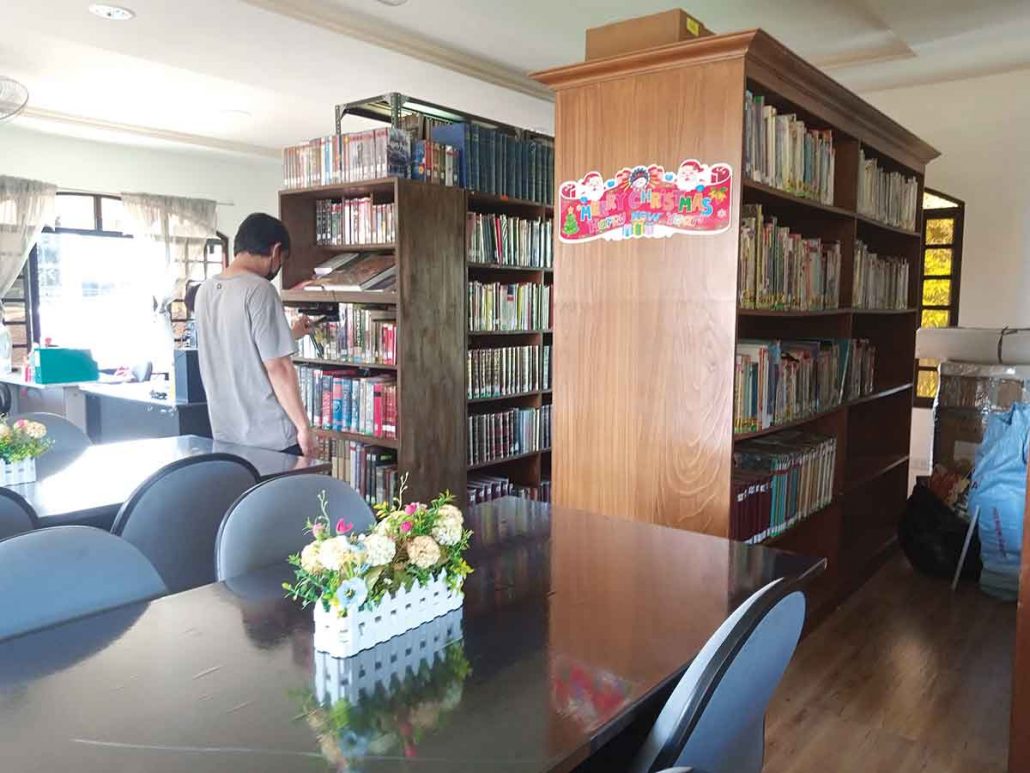
BY IME SORNITO AND GLENDA TAYONA
ILOILO – Pandemic-induced restrictions have hushed public libraries in the city and province of Iloilo, with lesser people accessing free offline resources.
The Iloilo Provincial Library and Archives at Casa Real de Iloilo (old Capitol building) on Bonifacio Drive halted their services at the height of the coronavirus disease 2019 (COVID-19) health crisis last year. It opened after several months, but patrons became sparse.

“May nagakadto pa man galing malaka-laka lang,” said Sharon Madrones-Gigante, officer-in-charge. “Ang tawo nahadlok man magwa. Others resorted online.”
The elderly was a usual sight with them holding local or national dailies.
There were also a few students seeking knowledge of the province’s history for their research projects.
The provincial library is open from 7 a.m. to 5 p.m.
Gigante assured the minimum health protocols are being observed.
She also cited the ongoing repair on the old capitol building as one hindrance to library-goers.
They temporarily relocated on the second floor of the Casa Real.
Only limited resources are also available such as magazines, newspapers and local history reading materials.
Books like references, encyclopedia, science, and math were left on the ground floor in their old office.
The repair may be completed next month, according to Gigante.
Meanwhile, the pandemic also affected the mobility of provincial library personnel who were supposed to go to local government units and schools for various campaigns.
Before the pandemic, Gigante said the provincial library was lending books to local government units (LGUs) or schools for three months.
According to Gigante, the provincial library has over 7,000 books that can be borrowed by schools and LGUs. These were allocated by the National Library and others purchased by the provincial government.
OTHER HUBS
Meanwhile, Gigante said out of 43 LGUs in the province, only 14 have established libraries: Alimodian, Barotac Nuevo, Barotac Viejo, Cabatuan, Calinog, Concepcion, Dingle, Leganes, Leon, Oton, Pototan, Mina, Miag-ao, and San Joaquin.
These remain open to clients, especially students, Gigante said.
According to Gigante, all LGUs were obliged to establish a library, but some local chief executives (LCEs) do not prioritize it, especially in a pandemic.
In building a library, Gigante explained LCEs must set aside funds for hiring a librarian, securing books and installing other tangible materials such as computer and television monitors.
Gigante believed it is more advantageous for LGUs to put a library in their municipal hall for easy access.
November is Library and Information Services (LIS) month.
CITY GOES ONLINE

On the other hand, the Iloilo City Library temporarily shut off its offline services, including its face-to-face monthly community storytelling and art activities at the barangay level, since the start of the pandemic.
Nevertheless, Vargas-Aguirre said activities continue virtually.
They were able to produce 61 videos (storytelling and demonstration of arts and crafts) so far.
These videos were posted on the City Library Facebook page (@iloilocitypubliclibrary) and accessible to all.
The city library also distributed modular materials to children aged four to 10 in the barangays.
These materials are also available on their Facebook page. Parents can download and have them printed.
“Clients communicate with us through Facebook, messenger and email. They inform us what they need, and we do the research for them,” said Vargas-Aguirre.
She is hopeful that by the first quarter of 2022, they will now be able to reopen the library to the public.
From the Iloilo City Hall, the city library relocated this October on Fajardo Street, Jaro district. It is called the Graciano Lopez-Jaena Museum and Library.
Vargas-Aguirre also said Mayor Jerry Treñas is considering the library’s 24/7 operations once it reopens.
Meanwhile, the city library is preparing for the 87th National Book Week Celebration in December through virtual activities./PN



